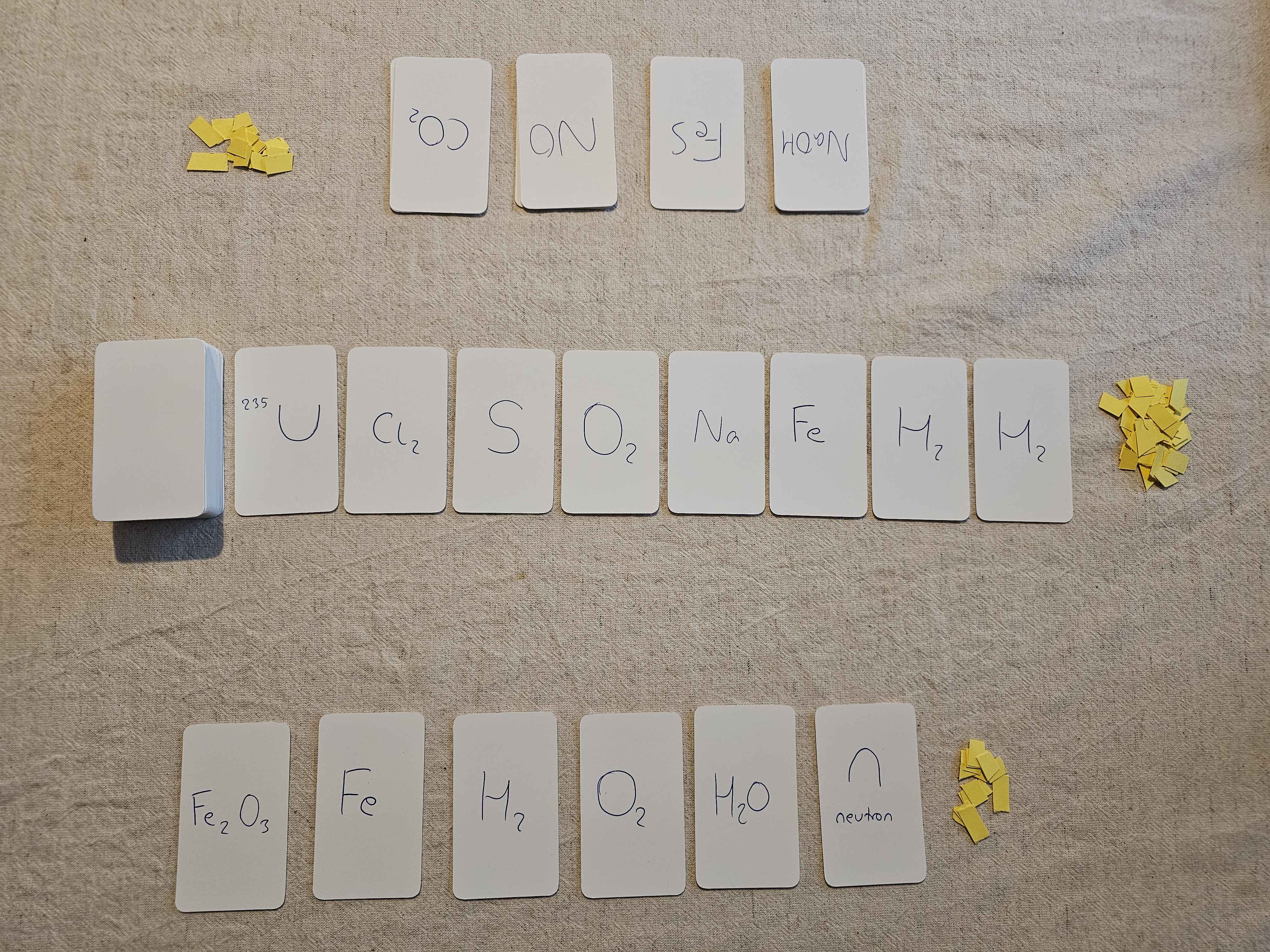Context
This game was developed on my own for the Warwick Game Design Board Games Jam 2025. The theme for this game jam was "Chain Reaction" (which I then very unoriginally used to title my game because I couldn't think of anything better).
How does it work?
The basic premise is simple - research a few particular compounds. However, there's a catch. Whenever you get new elements, all reactions happen immediately, whether you want that reaction or not. This means you have to be really careful about which elements you pick up so that the desirable reactions happen but the undesirable ones don't!
For the rest of the mechanics, I'll leave you to the rulebook. I would highly recommend reading this to understand how the game works before going any further with this article.
What went well?
The general premise of having to gather the right ingredients, combined with a strong economy system, worked really well. Triggering reactions to get another turn was consistently fun, and added some strategy as picking up elements is not optional! When I played, each of us had polar opposite strategies that ended up with very similar points. I used my coins little and often to get the elements I needed to score points, whereas my opponent saved up their coins to grab the uranium as soon as it appeared. There's a lot of things to spend a lot of coins on, so players that have a strong economy are heavily rewarded. However, you do generally need to get your particular elements to win the game, as good as the uranium is! In general, the uranium mechanic was extremely successful.
What didn't go well?
The biggest weakness of the game is the complexity of all the reactions and the time required to process them. 34 reactions is a lot to keep track of, and it often slowed the game down. Also, finding compounds in the compound deck took so long that I generally just wrote the names of compounds on new blank cards whenever reactions happened. However, as the game progressed, I did genuinely learn many of these reactions as a result and this game definitely does teach you those reactions. Overall, this may be more suited to a video game, which would speed it up to the intended fast pace, as the computer could simulate all the reactions for you.
Also, the mechanic of destroying elements wasn't used very much and might not even be necessary at all. More playtesting is required to determine if it needs slight improvements or if the game is better off without it.
Finally, as with any game developed in a short amount of time, significant balancing is required with the sell prices (individual cost for each printed on the card), point rewards (restrict the number of things that can be chosen and make an individual point reward) and reactions. There could also be more information about each reaction (such as what temperatures it usually happens at and what type of reaction it is) to increase the educational value.
Conclusion
Overall, this was a fun board game that just has a bit too much to manage to be a great board game.








